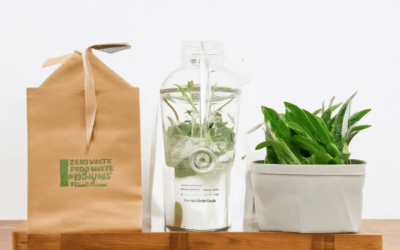As pet owners increasingly seek sustainable solutions, the world of eco-friendly pet care has emerged as a growing area of interest. With the rise of consciousness around environmental impact, many are looking to adopt practices that align with planetary health while still caring for their furry companions. From sustainable pet products to responsible ownership, the journey toward eco-friendly pet care offers numerous benefits for both pets and the planet. This article delves into the evolving landscape of sustainable pet care, exploring everything from the most eco-friendly pet options to the best practices for minimizing environmental impact. By understanding the importance of sustainable choices and the role of responsible pet ownership, we can all contribute to a healthier Earth while enjoying the joy of having pets in our lives.
Key Takeaways
- Growing Trend of Sustainability: 27% of pet owners rank sustainability as extremely important, reflecting a broader shift toward eco-conscious pet care.
- Eco-Friendly Actions:Pet owners are adopting practices like buying biodegradable toys, supporting local shelters, using eco-friendly grooming products, and embracing low-waste feeding habits.
- Advocacy for Sustainable Living: Platforms like Eco Planeta Verde guide pet owners in reducing pet waste and selecting environmentally responsible products.
- PETA’s Promotional Practices: The organization advocates for indoor living, adoption over breeding, vegan diets, and opposition to pet mills to enhance ethical pet care.
- Sustainable Animal Product Highlight: Eggs emerge as a highly sustainable choice due to their lower carbon footprint, water usage, and land efficiency, supported by certifications from organizations like the USDA Organic Program and the Animal Welfare Society.
- Importance of Sustainable Choices: Selecting certified, free-range, or organic eggs supports sustainable farming and offers a nutritious, versatile food option for pets.

What is the Most Eco-Friendly Pet?
Choosing the right pet can have a significant impact on the environment. While cats and dogs are popular, they may not always be the most eco-friendly options due to their resource consumption and waste production. However, several animal species stand out as more environmentally friendly choices.
Eco-Friendly Pets: A Sustainable Choice
Rabbits, goats, chickens, and ducks are often highlighted as some of the most eco-friendly pets. These animals typically require fewer resources and produce less waste compared to traditional pets. They also tend to have lower carbon footprints when raised responsibly.
Top Choices for Eco-Conscious Pet Lovers
- Rabbits : Known for their low food consumption and ability to eat household scraps, rabbits can be a great addition to eco-conscious households. They also produce less waste compared to dogs and cats.
- Goats : Goats are excellent at eating vegetation and can help manage landscaping. They are social animals and require more attention but are highly efficient in terms of resource use.
- Chickens : Chickens are ideal for small spaces and provide eggs while helping to control insect populations. They also contribute to a sustainable food source.
- Ducks : Ducks are gentle and require minimal space. They are excellent for waterfowl enthusiasts and can help with pest control in gardens.
How to Choose the Right Eco-Friendly Pet
When selecting an eco-friendly pet, consider factors like space, diet, and local regulations. Rabbits and chickens may require more space, while ducks and goats can be kept in smaller areas. Always ensure your choice aligns with your lifestyle and local laws.
Eco Planeta Verde encourages responsible pet ownership by promoting sustainable practices. For more information on raising eco-friendly pets, check out our guide to sustainable pet care .
By choosing one of these animals, you can enjoy companionship while contributing positively to the environment. Visit our website for additional tips and resources on eco-friendly living.
What Are Eco-Friendly Products for Pets?
- Eco-Friendly Food Storage:
- Bamboo or Stainless Steel Food Containers
- Ceramic or Glass Bowls
- Eco-Friendly Water Dishes:
- Bamboo or Recycled Plastic Bowls
- Durable and Reusable Materials
- Eco-Friendly Toys:
- Natural Rubber Toys Made from Hevea Trees
- Durable and Long-Lasting Materials
- Eco-Friendly Collars and Leashes:
- Hemp or Recycled Leather Collars
- Strong and Biodegradable Materials
- Eco-Friendly Litter Boxes:
- Recycled Plastic or Biodegradable Litter
- Low Dust and Odor Options
- Eco-Friendly Grooming Tools:
- Bamboo Brushes or Plant-Based Oils
- Sustainable and Safe Materials
- Eco-Friendly Plants for Pets:
- Herbs Like Catnip or Lavender
- Indoor Plants Safe for Pets

Does ‘Eco-Friendly’ Mean ‘Pet-Friendly’?
Eco-friendly products are often marketed as safe and sustainable, but this doesn’t necessarily mean they’re pet-friendly. Many eco-friendly ingredients can pose risks to pets, especially if they contain toxins or substances that could harm animals.
- Plant-Based Dangers: While plants are natural and eco-friendly, some can be toxic to pets. For example, saponins found in plants like soap nuts or soap berries can be harmful if ingested by dogs.
- Chemical Hazards: Phthalates, commonly found in fragranced household products like air fresheners or dish soap, can release volatile organic compounds (VOCs) that may affect pets’ health.
- Product Safety: Even though a product is labeled eco-friendly, it might not be safe for pets. Always check for pet-safe certifications or labels before purchasing.
To ensure your home is both eco-friendly and pet-friendly, consider the following tips:
- Check Labels: Look for pet-safe certifications on cleaning and grooming products.
- Use Non-Toxic Ingredients: Opt for natural, biodegradable products that are specifically formulated for pets.
- Consult Experts: Reach out to veterinarians or pet care professionals for recommendations on safe eco-friendly products.
For more information on creating a safe and sustainable home environment for both humans and pets, visit our Sustainable Home Guide .

Do Pet Owners Care About Sustainability?
In a recent survey by Yummypets, 27% of pet owners ranked sustainability as extremely important, while 38% found it very important. Only 5% indicated they did not care at all about sustainability.
Eco-consciousness among pet owners is growing, reflecting broader global trends toward environmental responsibility. Many are actively seeking out eco-friendly products and practices to reduce their pets’ carbon footprint. For instance:
- Purchasing biodegradable toys and organic pet food
- Supporting local shelters and rescues
- Choosing eco-friendly grooming products
- Adopting low-waste feeding habits
Eco Planeta Verde advocates for sustainable living, encouraging pet owners to adopt greener habits. Our platform provides valuable resources, including guides on reducing pet waste and selecting environmentally responsible products. By making informed choices, pet owners can contribute positively to the planet while caring for their furry companions.
For more tips on sustainable pet ownership, visit our blog and explore our comprehensive guides on eco-friendly practices. Together, we can create a brighter, cleaner future for pets and the environment.
What Does PETA Think About Owning Pets?
PETA believes that companion animals deserve respect and ethical treatment. Unlike traditional views, PETA advocates for a compassionate approach to pet ownership. Here’s their stance:
- Indoor Living : PETA encourages keeping pets indoors to protect them from hazards like extreme weather, predators, and traffic accidents.
- Adoption Over Breeding : They promote adopting pets from shelters instead of purchasing from breeders to reduce overpopulation and prevent neglect.
- Vegan Diet : PETA suggests a vegan diet for pets, arguing it aligns with animals’ rights and health.
- Opposition to Pet Mills : PETA opposes pet mills due to poor conditions and overbreeding.
- Responsible Ownership : They emphasize responsible ownership, including spaying/neutering pets to control populations.
By fostering a respectful and informed approach, PETA aims to enhance the lives of companion animals and promote ethical pet care practices.

What is the Most Sustainable Animal Product?
Eggs are often considered one of the most sustainable animal products available today. Their production has a significantly lower carbon footprint compared to other animal-based foods like beef and lamb. The carbon emissions associated with egg production are estimated to be nearly 50% lower than those of red meat.
Key Factors in Sustainability:
- Greenhouse Gas Emissions: Egg production emits fewer greenhouse gases due to its lower energy requirements and shorter lifecycle compared to other meats.
- Water Usage: Producing eggs typically uses less water than other animal products, making it more efficient in water-intensive regions.
- Land Use: Poultry farming generally requires less land compared to livestock grazing, reducing its environmental impact.
- Waste Management: Eggs produce less manure, which, when properly managed, contributes less to environmental pollution.
Certifications and Standards:
Sustainable egg production often meets high standards set by organizations like the USDA Organic Program and the Animal Welfare Society . These certifications ensure that eggs are produced in environmentally friendly and humane conditions.
Nutritional Benefits:
Eggs are a nutrient-dense food, containing high-quality protein, essential vitamins, and minerals. They are versatile in cooking and can easily fit into a variety of diets, promoting overall dietary balance and reducing food waste.
Comparison with Other Products:
While eggs are highly sustainable, it’s important to consider alternatives like plant-based proteins, which have even lower environmental impacts. However, when comparing animal products, eggs consistently rank among the most sustainable options due to their lower resource consumption and reduced greenhouse gas emissions.
Conclusion:
Based on factors like greenhouse gas emissions, water usage, land efficiency, and waste management, eggs stand out as one of the most sustainable animal products available. By choosing certified, free-range, or organic eggs, consumers can support sustainable farming practices while enjoying a nutritious and delicious food source.
For more information on sustainable living and eco-friendly practices, visit our sustainable living guides and explore our resources on reducing your environmental impact.




0 Comments